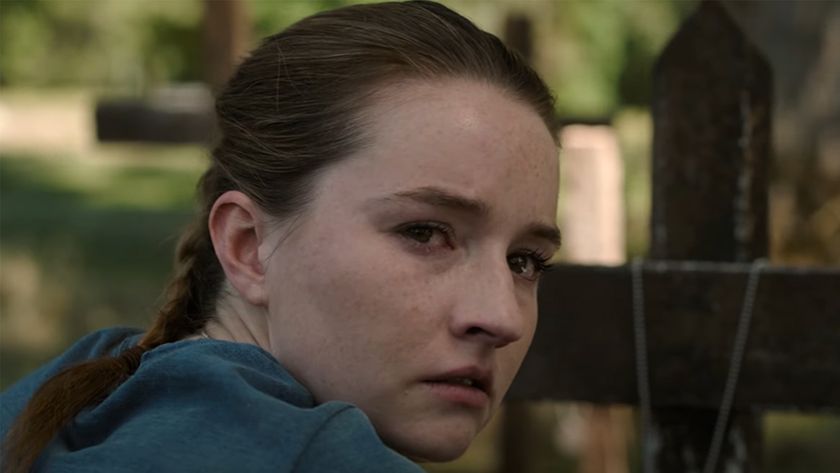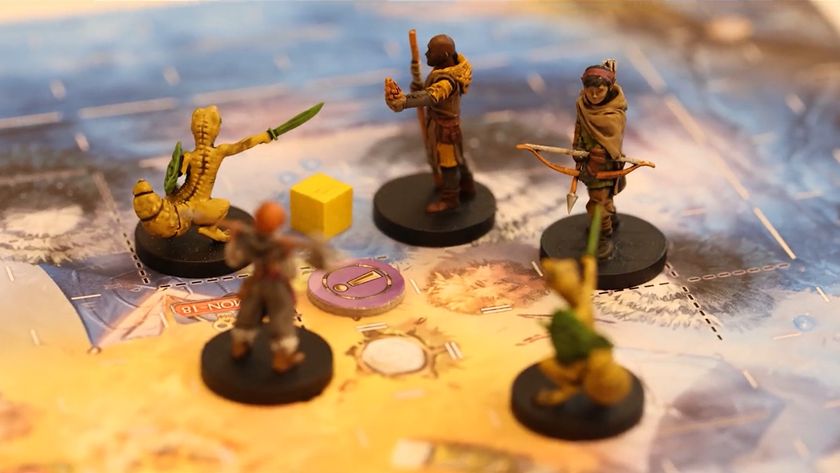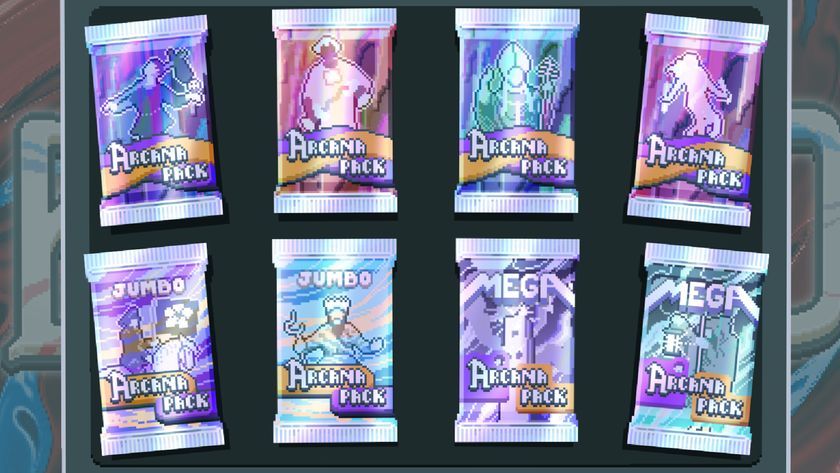She's the author of a dozen or so books, and following her 2006 short story collection Black Juice, comparisons were drawn between Australian Margo Lanagan and writers such as Angela Carter. Her new work, Tender Morsels, is a full-length novel released this year, and it's already picked up a Michael L Printz Award in the United States for literary excellence in young adult literature.
With its serious subject matter, this is most definitely not for children - the story refers to harrowing events, leading some critics to express shock (like the Daily Mail writer who described it as "sordid wretchedness" - but that's what the Daily Mail says about almost anything, isn't it?). Lanagan took time out to answer some of our questions about Tender Morsels and about the craft of writing in general:
SFX: Without spoiling the plot for those who haven't yet picked it up, can you give us a little bit of an introduction to Tender Morsels?
Margo Lanagan: It's a dark fable about a woman who is given her own personal heaven, and brings up her two daughters there. There are bears, dwarves, witches, treasure, and it all happens in a fairytale forest. It raises questions about how, and how well, we can protect our children from the evils of the wider world outside the family home.
SFX: The subject matter, particularly relating to Liga's upbringing, is very harsh. How difficult was it to write this story?
Lanagan: What happens to her is very harsh, but like all writing when it's working, it was a totally absorbing task, so there wasn't time or inclination to sit back at any point and think, 'How hard is this?' or 'Is this writing more or less difficult than the writing of pleasant scenes?'
It wasn't the same as going through Liga's traumas myself – I shielded myself as much as anyone by writing the worst parts of the events retrospectively, or indicating them with a section break. And there was the combined distance from and closeness to the events that came from having the job of communicating them in the way that suited the rest of the story. Even dealing with material as strong as this, there were the technical matters of representing them to take into account, as well as the unhappy nature of the events.
Sign up to the SFX Newsletter
Get sneak previews, exclusive competitions and details of special events each month!
Also, if a writer only dealt with material that was easy to write, I think that would make for a very dull read. Certainly when I'm reading, I like to feel that the writer was reaching beyond her own capabilities, seeing if she could pull off something slightly different from what she'd done before.
SFX: We read that the tale of Snow White and Rose Red is an influence on the story. What is it about that traditional story that appeals to you?
Lanagan: You probably read it in my acknowledgments in the book. Yes, I used the Grimm's tale, and the original tale (Caroline Stahl's 'The Ungrateful Dwarf') as the scaffolding for my story. As I said, bears, dwarves, witches, treasure – what's not to like? But it was more irritation than appeal that made me choose this story. If you read the two versions, you get a glimpse of the kinds of things the Grimms did to the tales they found, before they passed them on – which they've a perfect right to do as writers, but as folklorists I'm not so sure. It's a lesson not to take their versions as the originals, because they can say quite different things from the source material. Snow White and Rose Red underwent nothing less than a moralistic makeover, and ended up being an exhortation to young women to be acquiescent in marriage and tolerant of men's bestial nature, and this annoyed the heck out of me. I often find that anger, rather than enchantment and delight, is the motivating force behind a story – do you think it shows?
SFX: How did you arrive at Liga's personal version of heaven - is it your personal vision of the ideal place and life as well?
Lanagan: Ha, no! I think it's awful. Although I can see why she chose it – who wouldn't recreate the real world, but with all the harmful and frightening things wiped from it, if they could, and if they had been through what Liga has? But the blandification that comes with that, the absence of depth to any of the personalities (see the scene of Liga with Joseph the Lathe where she sees just how thin the veneer of fantasy is over the nothingness behind) and the sheer dullness of that world – well, I guess I express that through the urges Urdda feels to get away, as she grows, to find another world, full of 'vivid people' as opposed to the pleasant, personality-free ones she associates with.
SFX: You've now written 14 novels and three short story collections - do you have a personal favourite? Can a new reader enjoy Tender Morsels without having read any of your others?
Lanagan: Many of the novels were my apprenticeship novels, written under pseudonyms when I was learning how to fill 100 pages with a story that would engage readers. So that figure makes me sound a whole lot more impressive than a closer look will prove me!
No, I don't have a personal favourite among my stories/novels. I'm usually most pleased with the most recent one, because its flaws aren't so obvious to me... yet.
A reader can take on Tender Morsels without having read any of my other work. Most of that work won't prepare them in any way for what they find in this novel. Probably the closest resemblance is to some of the short stories in the collections (White Time, Black Juice, Red Spikes). If they have managed to stomach those, they should be able to cope with Tender Morsels!
SFX: What other big things are going on in SF and fantasy fiction right now - who else are you reading and enjoying? Do you have any pet hates about modern SF and fantasy?
Lanagan: No, there's plenty of room for all of us with our different weird projects; and there's plenty of variety in the field, so that determined readers can find lots of stories that they like.
Big things? I'm hoping the growing appetite for SFF movies, and huge hits like Twilight and Harry Potter will keep working away as they're doing, countering people's disinclination to pick up SFF simply because it's SFF, and do the work necessary to separate the wheat from the chaff within the chaff. Because, people, it sure isn't all chaff. All the good stories are living over here.
SFX: In the past we've run writing competitions in the mag - any tips for new writers on where they should begin? How do you begin planning a new book?
Lanagan: Writers should begin where it works for them. Some need the security of a mapped-out story and character biographies and political setups and the geology of the world they've created; for others, it's better to jump right in and start writing, then do catch-up research when questions arise that get in the way of the telling.
Generally I try to pretend that a new book is a smaller enterprise than it is, just to keep myself from being overwhelmed and discouraged by the size of the task. I work on it in partial ways, stabbing at different scenes, finding out what's most interesting about this story, exploring the characters I find, going at the thing a bit obliquely, so that I can get words down that will change my view of the novel from a terrifying obligation to a fascinating new place to explore, from a deadline into an interesting tool for living the next several months more fully. I've found that the freer and less systematic I am about the construction of the story, the better it works for me. I need to watch and wait for it to decide, almost for itself, which way it wants or needs to go. Which doesn't mean that I don't give it a nudge, or nag at it and ask it awkward questions along the way.
SFX: What will we see from you next - what are you working on right now?
Lanagan: You can expect to see a novella, which is being published in a collection of novellas called X6, edited by Keith Stephenson and published by his press, Coeur de Lion, in October. My story's all about selkies.
At the moment I'm at the very earliest stages of a new novel, reading around it, trying not to pin it down to the extent that it starts getting boring before I begin!, letting ideas for it float to the surface and just swim there, making notes but not committing myself to anything. All I'll say about that one is that it's set in Australia's colonial past, and is a fantasy.
SFX: thanks Margo!
SFX's review of Tender Morsels (

) appeared in SFX 185. The book is available now in the UK from Jonathan Cape priced £12.99.
SFX Magazine is the world's number one sci-fi, fantasy, and horror magazine published by Future PLC. Established in 1995, SFX Magazine prides itself on writing for its fans, welcoming geeks, collectors, and aficionados into its readership for over 25 years. Covering films, TV shows, books, comics, games, merch, and more, SFX Magazine is published every month. If you love it, chances are we do too and you'll find it in SFX.
















